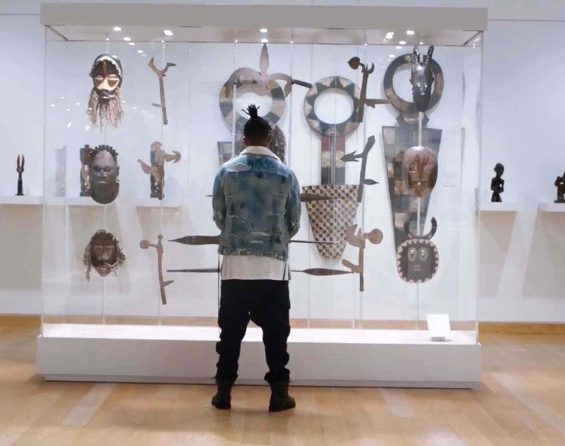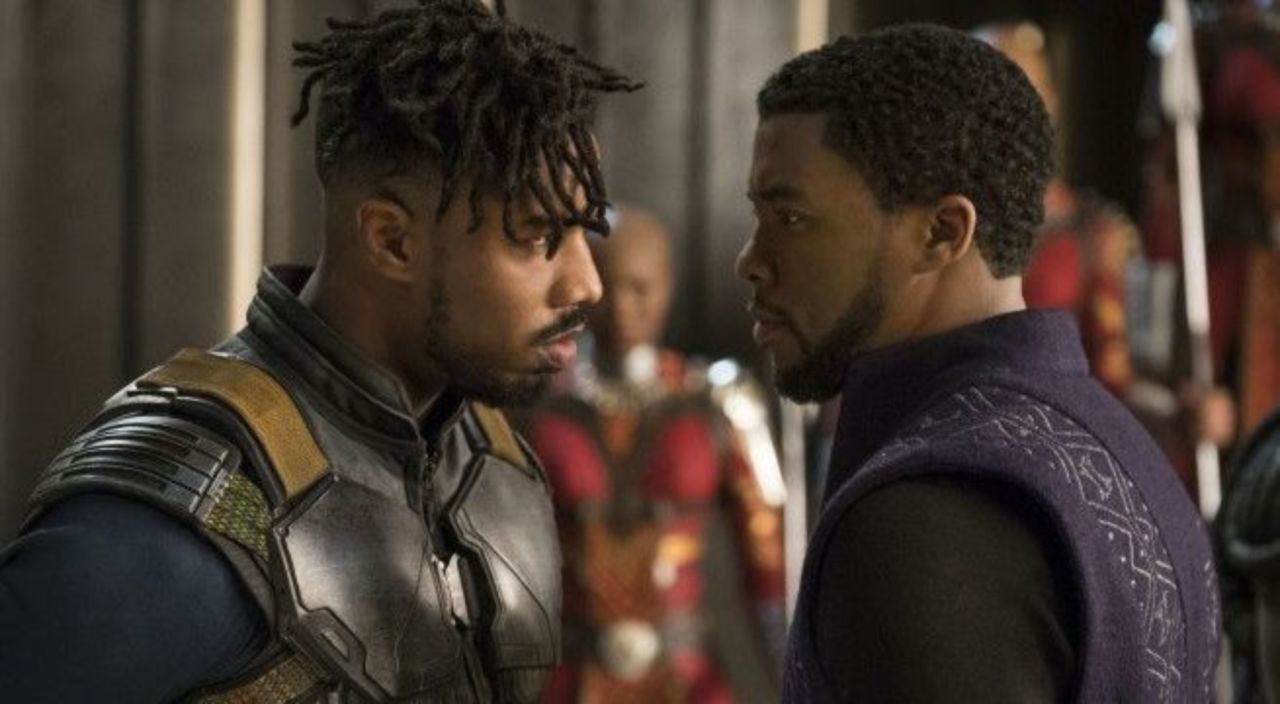
Black Panther is a masterful movie, unapologetically black, so smart, funny and gorgeous and everyone needs to go see it and then read some of these stunning articles. The conversations about representation and colonialism and the power of women and misogyny are all so important and we’re going to be having these conversations and feeling the impact of Black Panther for a long time, including about how it discusses the diaspora. But one character, in particular, has struck diaspora Asians straight in the heart and we can’t stop crying.
https://twitter.com/TheJakeChoi/status/964422789271732224
So many of us have had the experience of going to the homeland, either after a long time away or visiting for the first time because we were born diaspora, and feeling stunned and awed and…completely out of place and unwelcome. Wanting so desperately to belong but knowing so keenly you are a stranger. Meeting family, being talked about in a language you may or may not understand in front of you as if you don’t exist, seeing places you’ve been told about through nostalgic eyes. It’s overwhelming, disappointing, feeling the connection but knowing it’s off.
One project I worked on was led by a Filipino immigrant. One time we were talking about The Philippines and I used to phrase “It’s been a while since I’ve been back home” and he immediately pounced on me demanding to know why I thought I could call it home when I was born and raised in the US making it very clear that I had no rights to the homeland. That I was as much a tourist as any white bro coming in and “discovering” Filipino food.
Killmonger was told he didn’t belong.
By his family.
Before they even knew the destruction he was planning they dismissed him because no matter what his father’s connections were he was just another outsider to them. Someone with a father who left and a mother who wasn’t one of them. Someone with no right to return.

I was 15 the first time I remember going to the Philippines (I spent my first birthday there and went again when I was 3 for my sister’s first birthday). Growing up I certainly felt Filipina. Definitely different from my white friends. My mom was always taking us to filipino parties and we’d go to a few nights of simbang gabi every year. I’d eavesdrop on my mom’s conversations in Tagalog because she’d always forget that even though I couldn’t speak it (anymore. I’m told I had it until I started school and lost it around 5 or 6) I have pretty good comprehension.
We had a revolving door of relatives staying with us including my Lolo Sev who moved in when I was 2 and moved out 10 years later and my mom loved to freak us out with stories of aswang and tiyanak and oh the food. Sour mango with bagoong and eating kamayan and knowing there would always be pancit canton and lumpia alongside the turkey and mashed potatoes at thanksgiving. I expected finally consciously going to the homeland to feel like a homecoming. Sure it’d be awkward because I’m an awkward person but I didn’t expect how out of place I would feel.
It was amazing, seeing the places and my mom and other relatives had told me about, looking around and being surrounded by people who look like me. Hearing the language I associated with home all around me (as well as other languages, my family is from the Manila area and we speak Tagalog but the Philippines has quite a few languages.). Knowing the odds of being asked “what are you” were incredibly low.
But it was disheartening as well. Meeting relatives openly excited to see Ide’s daughter all grown and then hearing their asides to each other about how fat and American I was because they just casually assumed I didn’t understand. Being treated like a child. Dismissed without being given a chance.
A lot of people in the diaspora reach for pre-colonial history, practices, and mythology because while the modern people may reject us, they grew up in the post-colonial homeland and are almost as far removed as those in the diaspora. Wakanda may have escaped colonization by hiding from the world but you can see in the museum scene how Killmonger still went through the same journey. As if reaching back far enough will ease the pain of dismissal in the present and bring you closer to the spiritual roots of your country. With the Philippines when you reach back you find our roots are Pacifica in nature, that we share a lot of the same history and practices from hand tapped tattoos to headhunting to Maui.
It’s more effective when people in the homeland have to do the same reaching of course.
Erik can never reach far enough.
In this clip Lupita Nyong’o talks about what Africa might look like had it not been colonized, the taste we get in Wakanda. Your heart aches for what could have been.
There’s a big difference between Asian and African American diaspora. We aren’t stolen children and our homeland connection is generations closer but it comes to immigrant Africans, especially first/second-gen, everything coalesces.
This thread, by a second-gen Nigerian, was written before the movie came out and it was when I KNEW I and other diaspora asians would be a mess over Killmonger. No matter his status as a villain (for the record, #NakiaWasRight), his status as “not a real Wakandan” hits home.






